Ending the Cycle of Violence

The statistic from the National Coalition Against Domestic Violence is startling. One out of four women will be a victim of domestic violence in her lifetime.
Louie admits he's been abusing his wife, Shannon, for 13 years. He has been convicted of domestic violence twice—once in 1999 for punching Shannon and a second time for pushing her to the ground. He says he no longer physically abuses Shannon, but that the emotional abuse has continued.
In an e-mail to The Oprah Winfrey Show months ago, he confessed his behavior and pleaded for help. "I am an abusive husband," Louie wrote. "I verbally abuse my wife every single day, and I just can't seem to stop. I'm desperate for help. I lose my temper. Yelling, screaming and name-calling are part of our daily lives. At times, I will get within an inch of her face and scream at the top of my lungs. I will call her a liar over nothing and have even threatened to kill her. ...
"My emotions get out of control, and I have no idea why. I love my wife and kids and being a father. I can't imagine someone treating my daughters this way. I've been trying to change and I just can't make that final step."
Another Story About Domestic Violence
Louie admits he's been abusing his wife, Shannon, for 13 years. He has been convicted of domestic violence twice—once in 1999 for punching Shannon and a second time for pushing her to the ground. He says he no longer physically abuses Shannon, but that the emotional abuse has continued.
In an e-mail to The Oprah Winfrey Show months ago, he confessed his behavior and pleaded for help. "I am an abusive husband," Louie wrote. "I verbally abuse my wife every single day, and I just can't seem to stop. I'm desperate for help. I lose my temper. Yelling, screaming and name-calling are part of our daily lives. At times, I will get within an inch of her face and scream at the top of my lungs. I will call her a liar over nothing and have even threatened to kill her. ...
"My emotions get out of control, and I have no idea why. I love my wife and kids and being a father. I can't imagine someone treating my daughters this way. I've been trying to change and I just can't make that final step."
Another Story About Domestic Violence

Louie believes that the reason he lashes out at Shannon is because of the way he was treated as a child. "When I was a kid, my parents had a lot of issues. They split up, and my mom abused me," he says. "I went to live with my grandparents at a young age and I had six-inch-wide belt bruises from the back of my heels to the back of my head. That being said, that's no excuse for my actions as an adult."
Louie and Shannon are trying to understand his anger for a very specific reason. "We wouldn't be fighting for it as hard as we have and going through all this if there wasn't a lot of beautiful times making it worth something to fight for," Louie says.
Louie and Shannon are trying to understand his anger for a very specific reason. "We wouldn't be fighting for it as hard as we have and going through all this if there wasn't a lot of beautiful times making it worth something to fight for," Louie says.

Dr. Robin agrees that Louie's continued destructive behavior stems from childhood pain he has yet to overcome.
"You were disrespected as a child and you have physical and emotional wounds to prove that," Dr. Robin says. "We then grow up and we get involved with someone innocent, and violate them the way we were violated. We get into adult relationships and act out the stuff we saw that was a secret when we were children."
"You were disrespected as a child and you have physical and emotional wounds to prove that," Dr. Robin says. "We then grow up and we get involved with someone innocent, and violate them the way we were violated. We get into adult relationships and act out the stuff we saw that was a secret when we were children."
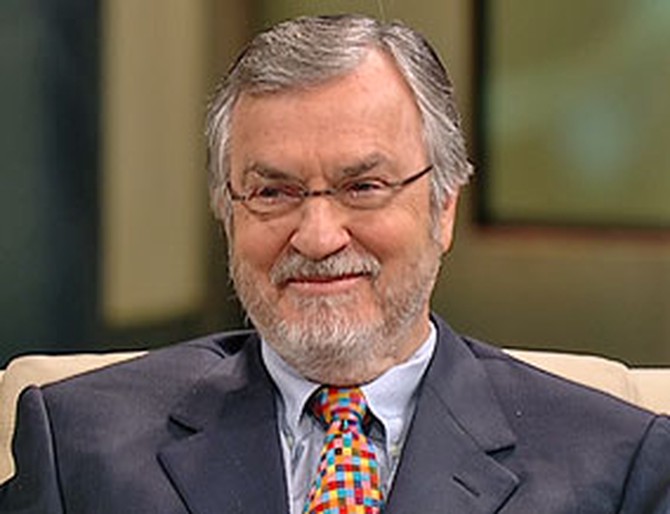
Oprah called upon Dr. Harville Hendrix, a relationship therapist whose work she calls "life changing," to help Shannon and Louie understand their marriage. His Imago Relationship Theory is based on the belief that individuals fall in love with someone whose personality is similar to that of their caretakers. "The reason for that is you want the positive and negative traits," he says. "But primarily the negative traits."
Dr. Hendrix says that when a person falls in love, they may appear to be attracted only to their partner's positive traits. Subconsciously, that person is also attracted to their partner's negative traits that are connected to the unfulfilled needs of childhood.
The Imago Theory is that it's not a coincidence you're attracted to your partner. "You lost [happiness during childhood] and you'll never feel fully alive again until you get it back. We think that committed partnership or marriage is the context within which those issues can be restored."
Dr. Hendrix says that when a person falls in love, they may appear to be attracted only to their partner's positive traits. Subconsciously, that person is also attracted to their partner's negative traits that are connected to the unfulfilled needs of childhood.
The Imago Theory is that it's not a coincidence you're attracted to your partner. "You lost [happiness during childhood] and you'll never feel fully alive again until you get it back. We think that committed partnership or marriage is the context within which those issues can be restored."
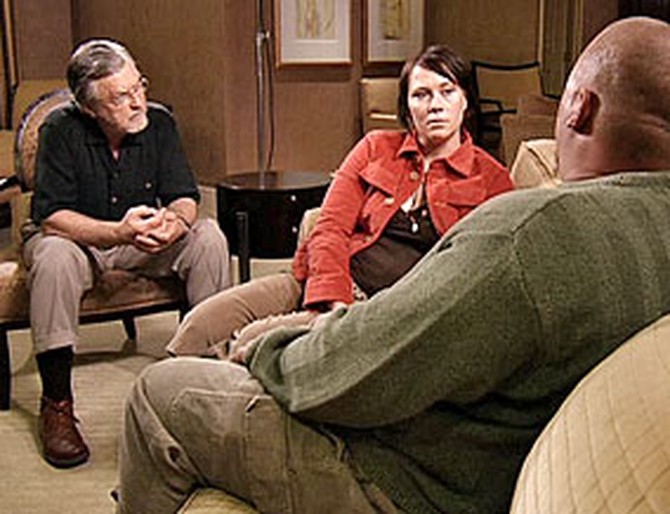
Dr. Hendrix led Louie and Shannon through Imago therapy sessions by using Intentional Dialogue exercises to help them discover and deal with the unfulfilled childhood origins of their violent relationship.
The first step is mirroring, in which one person acts as a stand-in for their partner's guardian. "You listen to your partner talk and you make every effort you can to accurately hear what they're saying without criticizing it, without judging it," Dr. Hendrix says.
At Dr. Hendrix's prompting, Shannon asks Louie to explain what living with his parents was like. "The only thing that you've ever cared about is yourself," Louie says. "You had kids because you thought they would make you happy, not because you wanted to take care of them or because you cared about them."
With Dr. Hendrix's help, Louie went even further with mirroring. "It's not fair that you take away my childhood and take out everything that you've done wrong in your life on us. ... I'm learning from you how to hurt people so when I grow up then I can hurt the ones I love," Louie says.
"So living with us is like being in hell—never feeling loved, never feeling wanted, never feeling taken care of," Shannon says, as she mirrors Louie's parents.
Dr. Hendrix believes that mirroring is an important first step because it allows someone like Louie to re-experience and then release his pain. "You don't get it all out in one session or with one deep experience of sobbing, but you begin to open up," Dr. Hendrix says. "When you start acting out in adulthood with hurtful behavior, you're actually acting out of that pain. If you release the pain, then you remove the power [that pain holds]."
The first step is mirroring, in which one person acts as a stand-in for their partner's guardian. "You listen to your partner talk and you make every effort you can to accurately hear what they're saying without criticizing it, without judging it," Dr. Hendrix says.
At Dr. Hendrix's prompting, Shannon asks Louie to explain what living with his parents was like. "The only thing that you've ever cared about is yourself," Louie says. "You had kids because you thought they would make you happy, not because you wanted to take care of them or because you cared about them."
With Dr. Hendrix's help, Louie went even further with mirroring. "It's not fair that you take away my childhood and take out everything that you've done wrong in your life on us. ... I'm learning from you how to hurt people so when I grow up then I can hurt the ones I love," Louie says.
"So living with us is like being in hell—never feeling loved, never feeling wanted, never feeling taken care of," Shannon says, as she mirrors Louie's parents.
Dr. Hendrix believes that mirroring is an important first step because it allows someone like Louie to re-experience and then release his pain. "You don't get it all out in one session or with one deep experience of sobbing, but you begin to open up," Dr. Hendrix says. "When you start acting out in adulthood with hurtful behavior, you're actually acting out of that pain. If you release the pain, then you remove the power [that pain holds]."

After the mirroring experience, Dr. Hendrix asks Louie a simple, yet seemingly paradoxical, question: How do your feelings of disrespect, distrust and poor communication help you?
"It keeps [me] feeling safe," Louie says. "I'm afraid to let that go. I'm afraid that I'm going to get trampled on, or she's going to walk out on me like everybody else."
Shannon also "benefited" from poor communication, using it to shield herself from the reality of their relationship. "I don't expect much out of him, so he doesn't really disappoint me," she says.
The emotional wall between Shannon and Louie insulated each of them from feeling even more pain, Dr. Hendrix says. "Closeness is connected with pain from childhood for both of them. Closeness has in it pain. Deep in the brain, pain is always connected to the possibility of death," he says. "In order to stay alive, I'm going to have to keep any distance."
Louie maintains this emotional distance in the way he was taught by parents. Dr. Hendrix says that Louie maintains this emotional distance because he does not know how to have "appropriate separateness without being abusive verbally."
"It keeps [me] feeling safe," Louie says. "I'm afraid to let that go. I'm afraid that I'm going to get trampled on, or she's going to walk out on me like everybody else."
Shannon also "benefited" from poor communication, using it to shield herself from the reality of their relationship. "I don't expect much out of him, so he doesn't really disappoint me," she says.
The emotional wall between Shannon and Louie insulated each of them from feeling even more pain, Dr. Hendrix says. "Closeness is connected with pain from childhood for both of them. Closeness has in it pain. Deep in the brain, pain is always connected to the possibility of death," he says. "In order to stay alive, I'm going to have to keep any distance."
Louie maintains this emotional distance in the way he was taught by parents. Dr. Hendrix says that Louie maintains this emotional distance because he does not know how to have "appropriate separateness without being abusive verbally."
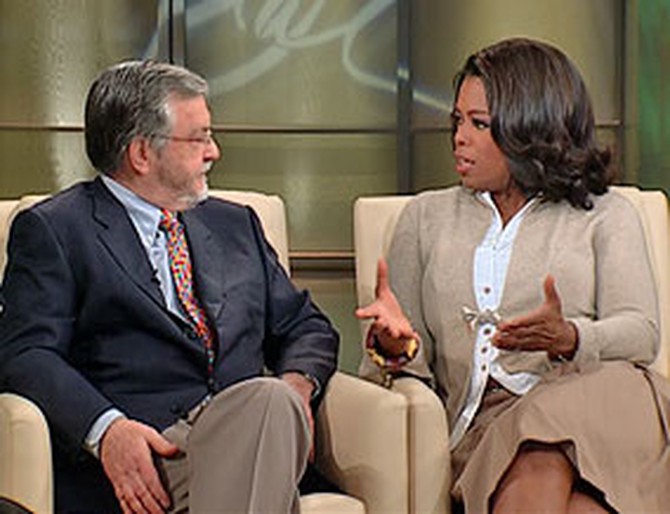
A technique Dr. Hendrix calls "behavior change request" can encourage communication and reduce partners' frustrations with each other. "Embedded in every gripe, complaint, criticism [and] frustration you have is a wish," Dr. Hendrix says.
Couples need to tell each other their wishes, he says. Oprah points out that most people believe their partner should automatically know their desires. For example, isn't it obvious the dishes need to be done? Why can't he just do them?
Dr. Hendrix calls this type of thinking "the illusion of romance." "It's like symbiosis," he says. "[Partners think], 'You live in my head, don't you? Don't you know what I'm thinking? Why aren't you doing it? I fuse you with me—I assume that we're just one person.'"
Couples need to tell each other their wishes, he says. Oprah points out that most people believe their partner should automatically know their desires. For example, isn't it obvious the dishes need to be done? Why can't he just do them?
Dr. Hendrix calls this type of thinking "the illusion of romance." "It's like symbiosis," he says. "[Partners think], 'You live in my head, don't you? Don't you know what I'm thinking? Why aren't you doing it? I fuse you with me—I assume that we're just one person.'"
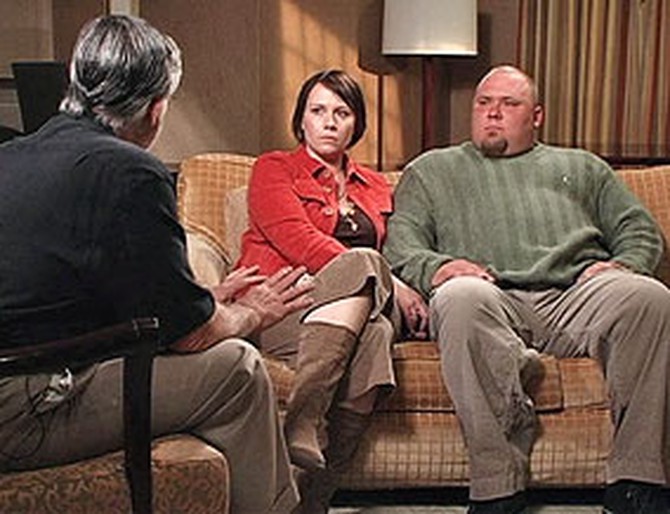
To begin Dr. Hendrix's behavior change technique, Louie and Shannon describe their dissatisfactions with each other. Louie's biggest gripe with Shannon is the fact that she expects him to read her mind, he says. "When you want something, you don't ask for it, and then you get angry [when I don't do it]," he says.
Dr. Hendrix asks Louie to come up with three things that Shannon could do for him that would reduce his frustration. She will choose one of the three and commit to changing her behavior for three weeks.
Louie's first request is for Shannon to create a daily list of household chores for him. His second request is a permanent list of things that need to be done on a regular basis. Louie's third request is for Shannon to tell him every afternoon the specific tasks that need to be done that day. Shannon says she's willing to make a daily list of things that need to be done around the house.
Shannon's main dissatisfaction with Louie is that she feels lonely and wants more time with her husband. "He pretty much spends all of his time when he's at home in our bedroom," she says.
Shannon's first behavior change request is for Louie to engage the family for at least one hour every day. Her second request is for him to limit the time he spends by himself. Shannon's third request is that Louie eats dinner with the family instead of alone in his room. Louie chooses to spend at least an hour with Shannon and their children every day for three weeks.
Dr. Hendrix asks Louie to come up with three things that Shannon could do for him that would reduce his frustration. She will choose one of the three and commit to changing her behavior for three weeks.
Louie's first request is for Shannon to create a daily list of household chores for him. His second request is a permanent list of things that need to be done on a regular basis. Louie's third request is for Shannon to tell him every afternoon the specific tasks that need to be done that day. Shannon says she's willing to make a daily list of things that need to be done around the house.
Shannon's main dissatisfaction with Louie is that she feels lonely and wants more time with her husband. "He pretty much spends all of his time when he's at home in our bedroom," she says.
Shannon's first behavior change request is for Louie to engage the family for at least one hour every day. Her second request is for him to limit the time he spends by himself. Shannon's third request is that Louie eats dinner with the family instead of alone in his room. Louie chooses to spend at least an hour with Shannon and their children every day for three weeks.
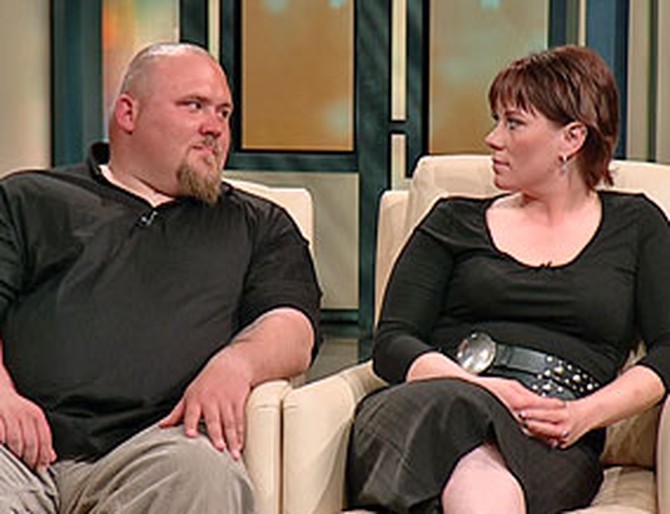
After the three-week experiment, Louie and Shannon say the behavior change request exercise has given them a new level of comfort in their relationship. "I feel more secure and I have more of a sense of hope than I've ever had in my entire life," Louie says. "I feel like I've stepped into her shoes and she's stepped into mine."
By really listening to each other, Dr. Hendrix says, couples "become passionate friends. That's what we call a conscious partnership."
By really listening to each other, Dr. Hendrix says, couples "become passionate friends. That's what we call a conscious partnership."
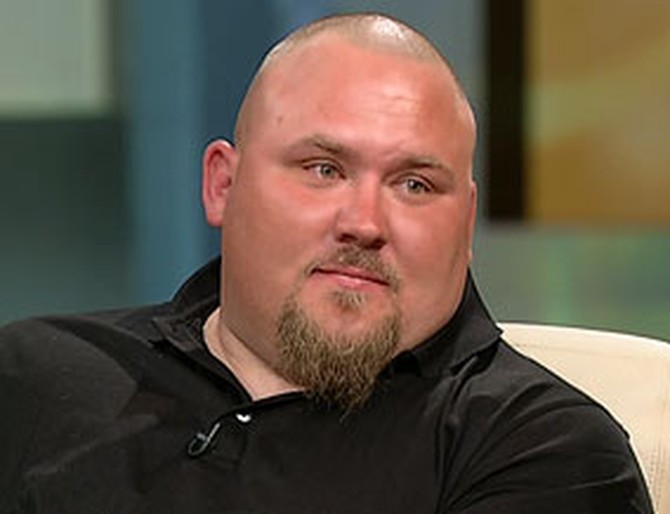
Dr. Hendrix says his "exercise in appreciation" only takes a few minutes a day and can transform relationships. He encourages couples to replace negativity with appreciation by finding three things every day for which to thank each other.
"It is super hard, but it's the most amazing thing," Louie says, admitting that he and Shannon have only committed to one appreciation each day. "When [your partner] gives you that one appreciation, all [the day's troubles] turn off. All day you're thinking about, 'Man, that was nice and I feel good about what she said about me.' It changes your whole outlook on the day."
"It is super hard, but it's the most amazing thing," Louie says, admitting that he and Shannon have only committed to one appreciation each day. "When [your partner] gives you that one appreciation, all [the day's troubles] turn off. All day you're thinking about, 'Man, that was nice and I feel good about what she said about me.' It changes your whole outlook on the day."
Published 04/19/2006

